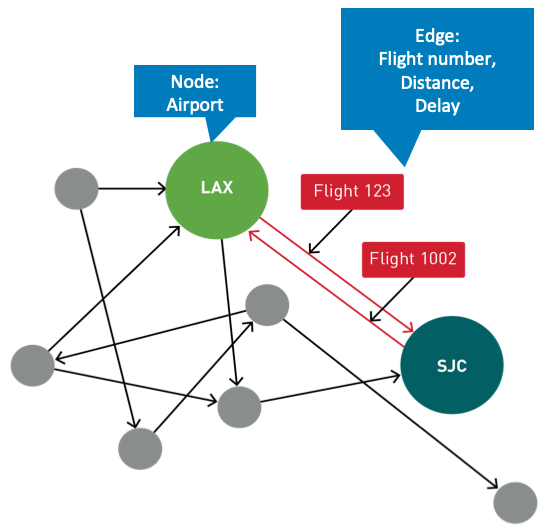Eric Slesinger: The American VC Betting on European Defense Tech
VCs often follow trends, but Eric Slesinger stands out. While many American investors target AI or U.S.-based defense tech, this former CIA officer seeks defense tech deals in Europe. Slesinger's 201 Ventures recently closed a $22 million fund for seed-stage European defense tech startups. His transition from developing gadgets for CIA agents to becoming an American VC focused on European defense tech seems insightful.
From CIA to Venture Capital: A Shift in Perspective
Why leave a “dream job” at the CIA for this specific venture? Slesinger explained in a StrictlyVC Download podcast interview that he recognized a critical shift: the private sector's growing role in global competition. “I left because I noticed that the private sector was increasingly playing a role in this competition that I previously had understood really to just be a government to government competition,” Slesinger said. “What became obvious more so every day was that the private sector was playing such a big role here.”
Slesinger’s background, with degrees from Stanford in mechanical engineering and Harvard Business School, prepared him to bridge defense technology and commercial ventures. His willingness to challenge conventional wisdom has attracted attention from investors, founders, and tech reporters.
“I have always enjoyed going where other people tend to not want to go,” Slesinger stated. “That was why I enjoyed the work at the CIA so much. A couple of things that people there used to say was, ‘go where others don’t go and do what they can’t do.’”
Europe's Untapped Potential in Defense Tech
Slesinger identified three key factors that U.S. VCs were overlooking:
- Entrepreneurial Talent: “Europe has individual entrepreneurs that are just as hungry, just as high conviction, and just as smart as anywhere else in the world.”
- Rethinking Security: “European governments waited way too long to rethink what the arrangement on their own security meant, and therefore hadn’t actually taken a critical eye towards it.”
- Gray Zone Competition: “Europe was quickly being seen and will, in my opinion, continue to be the site of serious gray zone competition,” referring to activities between peace and war by state or non-state actors.
Overcoming Cultural Resistance
A surprising aspect of Slesinger’s European venture is the cultural resistance he faced regarding defense investments. After moving to Madrid in 2022, he founded the European Defense Investor Network, which includes entrepreneurs, investors, and policymakers. In a 2023 Medium post, Slesinger noted that his European VC colleagues were hesitant to discuss their defense-related investments. Unlike in America, defense tech investing in Europe “was seen as uncouth, something that should be done but not spoken about, and certainly not spoken about in polite company at the dinner table.” (He added, “I’m exaggerating a little bit, but there’s a kernel of truth there.”)
This cultural hesitance led to “many founders thinking about it, deciding not to build a company in the [defense] space.” However, this is changing. The NATO Innovation Fund, backed by 24 NATO allies and launched after the Russia-Ukraine war, has been a significant catalyst. It is also a substantial backer of 201 Ventures.
Spotlight on Promising European Defense Tech Startups
The attention garnered by emerging defense tech startups in Europe is also contributing to the shift. Munich-based Helsing, which develops AI for battlefield use, is valued at over $5 billion. Another notable startup in Slesinger’s portfolio is Delian Alliance Industries, based in Athens, which develops surveillance towers to detect autonomous threats. Delian has secured seed funding and is attracting VC interest.
With eight investments to date, 201 Ventures focuses on technologies addressing gray zone competition, which Slesinger believes is “happening at scale in Europe, and it will for the next couple of decades.” He sees these market dislocations as a source of alpha: “Whether they’re price inefficiencies or a government playing a larger role in a market that it might otherwise, if not for wanting a sovereign capability… these gray zone dislocations actually are a good form of alpha.”
Besides Delian, Polar Mist, a Swedish startup producing maritime drones with advanced navigation, is another of Slesinger’s investments. Other areas of interest include hypersonics and subsurface mapping.
Challenges and the Future of European Defense Tech
One challenge in funding defense tech startups is the longer development timeline compared to traditional venture investments. Slesinger acknowledged this issue: “If you have a 10-year-venture-fund life cycle, that’s a real thing that we sort of have to do things to try to accelerate or bend a little bit.”
Slesinger also believes that “European companies ought to be doing more lobbying at much earlier stages.”
These points raise questions about the potential returns for investors. However, Slesinger's early vision of a more autonomous European defense ecosystem is gaining traction as geopolitical tensions rise and Europe reconsiders its security arrangements.
Data from the NATO Innovation Fund and Dealroom indicates that European startups in defense and related tech raised 24% more capital in 2024 than in 2023, reaching $5.2 billion, surpassing even AI funding. With potential shifts in U.S. commitment to European defense, this figure is expected to increase.
Key Takeaways
- Strategic Vision: Eric Slesinger's focus on European defense tech is driven by a belief in the region's untapped potential and the increasing importance of private sector innovation in defense.
- Market Opportunity: The rise of gray zone competition and the need for sovereign capabilities create unique investment opportunities in European defense tech.
- Cultural Shift: Overcoming cultural resistance to defense investments is crucial for fostering a thriving defense tech ecosystem in Europe.
- Investment Trends: European defense tech startups are attracting significant funding, driven by geopolitical tensions and the NATO Innovation Fund.
- Future Outlook: The European defense tech sector is poised for continued growth, presenting promising opportunities for investors and entrepreneurs.
